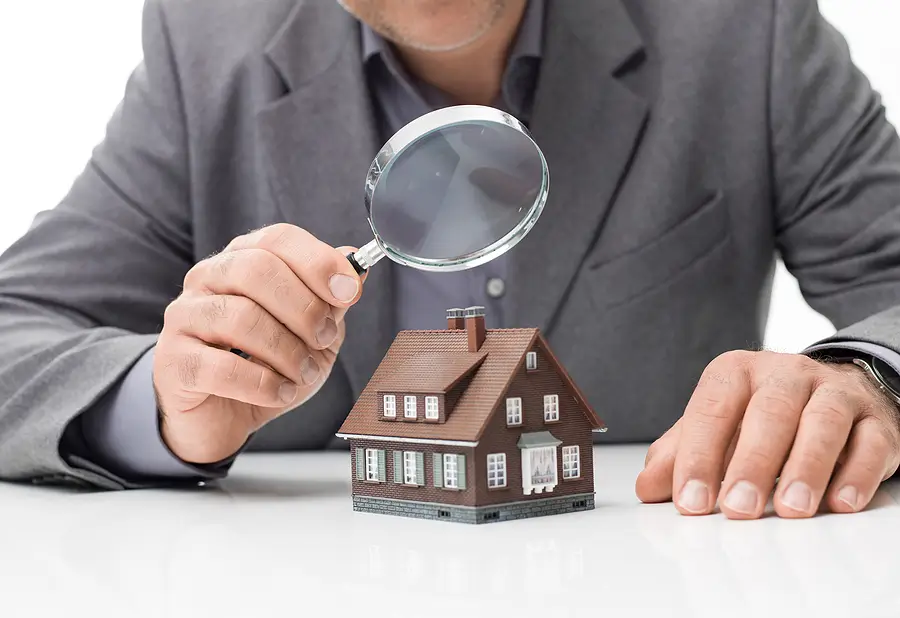Regular inspections are essential duties for property owners. They help them maintain the value of their investments and ensure tenant satisfaction.
To conduct inspections effectively, it's ideal to create a detailed checklist you can follow to cover all your bases and follow local regulations. What exactly do you have to do during a rental property inspection?
Rental Inspection Checklist
HVAC System
The heating and cooling systems are necessary to create a comfortable living environment for your tenants. Given that summers can get very hot in Atlanta, Georgia, a working air conditioning system can help maintain cool temperatures within your rental units.
Don't limit your rental inspection to its function. Check key areas, such as air filters and condensate drains.
Smoke and Carbon Monoxide Detectors
Your routine rental inspections should include carbon monoxide and smoke detectors to ensure fire safety. Georgia landlord-tenant laws require the installation of such alarms in every unit of apartment complexes.
While the same cannot be said about single-family homes and duplexes, you still need to check their functions and change the batteries when necessary to avoid safety hazards.
Plumbing System
Plumbing is one of the three main systems crucial for rental property inspections, along with electrical and HVAC. The property manager or landlord must inspect fixtures like toilets, faucets, sinks, and showers.
This prevents issues like water leaks, water damage, and even burst pipes, which can lead to costly repairs. Inspecting your property ensures that your tenants have running water, which is a requirement for every rental property in Atlanta.
Electrical System
The electrical system can be more complex than the HVAC and plumbing systems, especially since miswiring connections can lead to electrical shock, fire hazards, and damage to appliances. It's best to find professionals to handle maintenance issues if you find them.
This can manifest as faulty light switches or non-working outlets. While tenants usually report electrical system maintenance concerns as soon as they arise, it's still crucial to include them in routine inspections.
Property Damage
A tenant's maintenance responsibilities are usually specified in the lease agreement, and it is part of your duty to enforce these rules. Routine inspections will ascertain whether they are keeping the unit properly maintained, and if there are damages beyond normal wear and tear.
It's important to check your previous inspection reports to determine whether the damages were pre-existing before the tenant moved in. If not, you can either charge the tenant for repair costs or deduct them from the tenant's security deposit.
Cleanliness
The rental property's condition goes beyond its systems and the integrity of the structure. Cleanliness will also prevent you from encountering problems like pests and mold. In regard to cleaning, rental inspection also applies to tenants' personal belongings, like furnishings, since they can also be a source of mold growth or pests.
Before You Conduct Rental Inspections
As important as property inspections are, you must still adhere to a process and respect your tenant's privacy. Provide a proper notice stating that you will be entering the premises, notifying tenants at least 24 hours before the rental inspections. While it is not a required notice, it's the ethical thing to do.
Providing prior notice can help you foster a positive relationship with your residents and promote tenant compliance. This applies to mid-lease inspections and move-out inspections. To avoid discriminatory practices during periodic inspections, check local or federal laws, such as fair housing laws.
During the Rental Inspections
During a property manager or landlord inspection, document the process as you assess the property's conditions. If possible, go through your inspection checklist in order and write a thorough report to address all issues, such as property damage, faulty systems, and lease term violations, such as unauthorized pets.
After You Conduct Rental Inspections
After the inspections are finished, provide your tenant with a copy of the rental inspection report. Although this is not legally mandated, you can still do so for the sake of transparency. The report will outline the identified maintenance issues, which you or your tenant will need to correct.
Rental Property Inspection FAQs
What if a tenant refuses to let me enter for inspections?
- No, especially if you provided proper notice and it was stated in the lease agreement. If they continue to unreasonably refuse entry, you can obtain a court order to compel the tenant to allow entry. If the problem persists, you may proceed with legal action or eviction.
What is included in a rental inspection report?
- Generally, the rental inspection report outlines details about the property, the tenant, the date of the inspection, the purpose of the inspection, the findings, and recommendations for corrections.
Can I skip routine inspections?
- You should avoid skipping inspections as much as possible. This helps you protect tenants from risks and maintain your property investments. If you can't conduct the inspections, you can start by addressing maintenance requests.
What is the next step after finding issues upon inspection?
- You may ask the tenant to fix the issue if it's within their responsibility. Schedule a follow-up inspection to determine whether they fixed the problem or not.
Should I conduct more frequent inspections for month-to-month rental agreements?
- In that case, you can conduct routine maintenance more frequently to check for damages or violations within the rental cycle. This ensures you have a well-maintained property and will reduce the potential damages you have to fix during move-out inspections.
Are move-in inspections the same as mid-lease inspections?
- No. Move-in inspections usually require a more thorough inspection and deep cleaning for new tenants. These measures usually increase the appeal of your property and help you find prospective tenants faster.
Let a Property Management Company Handle It
Regular inspections require a lot of thought and effort, especially if you have more than one rental unit. Missing key areas can lead to risks, even violating tenant rights. Professional property management takes the stress off your hands.
PMI Georgia not only conducts regular inspections for you, but our company can also negotiate high-quality services at reasonable rates with a reliable network of vendors. Our 24/7 service allows fast responses to tenants when they report maintenance issues.
We would be happy to provide this standard of vigilant service to maintain the value of your property. Feel free to contact us to discover what we can do for you!


